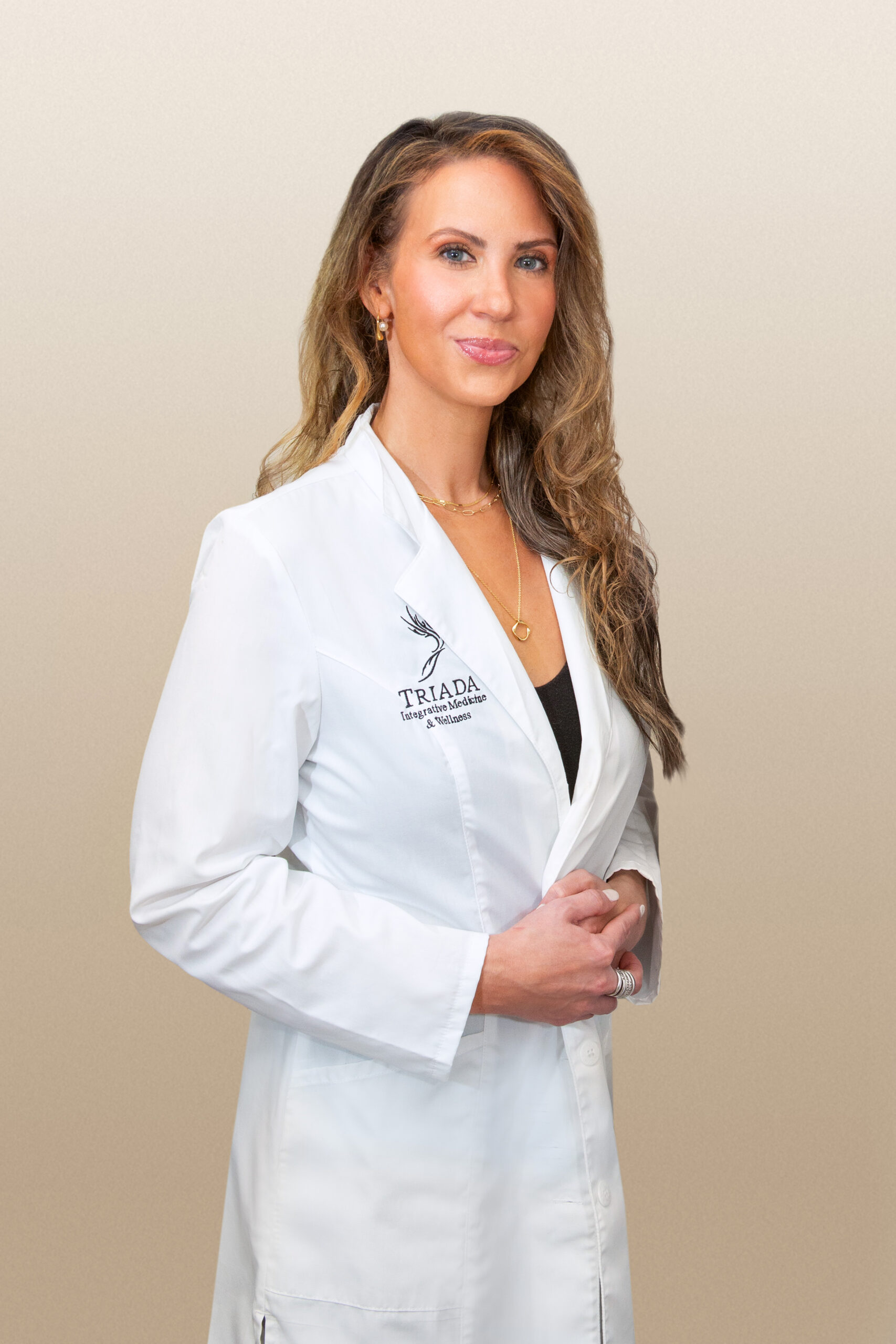A Guide To Supplements For Anti-Aging for Estheticians and Aesthetic Professionals
Supplements for anti-aging, wellness, and healthy skin are so important to incorporate into your esthetic practice.
As estheticians and aesthetic professionals, understanding the role of supplements in skin health, anti-aging, and overall wellness can enhance the results of skincare treatments and guide clients toward holistic beauty. Aesthetic, regenerative, and biohacking investigators have searched far and wide to understand the physiological impact of key supplements, seeking strategies to improve skin integrity, elasticity, and longevity. This article examines some hot-topic supplements for anti-aging and skin health, explaining their mechanisms of action and potential benefits.
Dr. Briglia’s 10 Supplements For Anti-Aging, Wellness + Healthy Skin
1 NAD (Nicotinamide Adenine Dinucleotide)
NAD is a coenzyme critical for cellular metabolism and mitochondrial function. As we age, NAD levels decline, impairing energy production and DNA repair, leading to cellular senescence and oxidative stress (Verdin, 2015). Supplementing with NAD or NAD precursors, such as nicotinamide riboside (NR) or nicotinamide mononucleotide (NMN), can enhance cellular energy and reduce oxidative damage, promoting skin vitality and delaying visible aging (Rajman et al., 2018).
Sermorelin
Sermorelin is a synthetic peptide that stimulates the pituitary gland to produce growth hormone (GH). GH influences collagen synthesis, skin hydration, and cellular regeneration. By increasing GH levels, sermorelin promotes dermal thickness, improves wound healing, and enhances skin resilience (Walker et al., 2020). Additionally, it supports overall tissue repair and metabolic function, contributing to anti-aging benefits.
2 DHEA (Dehydroepiandrosterone)
DHEA is a precursor hormone that converts into testosterone and estrogen. It plays a significant role in reducing cortisol levels, which, when elevated, can lead to collagen breakdown and skin thinning (Labrie et al., 2005). By mitigating cortisol’s catabolic effects, DHEA supplementation helps maintain skin hydration, elasticity, and overall dermal health.

February 2025 L+A Report
Medi-Beauty Trends for 2025
Beauty trends for your practice from laser treatments to tinted primers!
2025 is about re-imagining beauty! We beg of you to let go of conventional thinking because – there’s nothing conventional about the treatment options available today!
Please join us —– over here —- outside of that box!
3 BHRT (Bioidentical Hormone Replacement Therapy)
BHRT replenishes declining levels of estrogen, progesterone, and testosterone in aging individuals. Estrogen enhances skin hydration and elasticity by increasing collagen synthesis, while progesterone and testosterone contribute to dermal thickness and repair (Thornton, 2013). BHRT, when administered appropriately, can counteract hormonal aging effects, preserving youthful skin texture and function.
4 Colostrum
Colostrum is rich in growth factors, immunoglobulins, and peptides that support tissue regeneration and immune function. It enhances fibroblast activity, leading to improved collagen synthesis and wound healing (Playford et al., 2000). Additionally, its anti-inflammatory properties help reduce redness and irritation, making it beneficial for sensitive or aging skin.
5 Protein
Adequate protein intake is essential for maintaining skin structure and function. Amino acids, particularly glycine, proline, and lysine, are vital for collagen production (Phillips, 2017). Protein supplementation supports tissue repair, enhances skin firmness, and prevents premature aging by maintaining the integrity of the dermal matrix.

Dr. Krystal Briglia, L+A Medical + Wellness Editor
Dr. Krystal Briglia of Triada Integrative Medicine + Wellness is a board-certified nurse practitioner specializing in aesthetic dermatology, integrative medicine, and wellness. She has an extensive and diverse background in healthcare, with over a decade of experience working in emergency, critical care, trauma, aesthetics, healthcare administration, and healthcare education. Krystal holds multiple board certifications, including family practice, emergency, and critical care. Her educational background includes two undergraduate degrees, a degree in health sciences, and a bachelor’s degree in nursing from the University of Delaware. She holds three graduate-level degrees, including a master’s degree in nursing leadership, a master’s degree in business administration, and completed her nurse practitioner education at the University of Massachusetts. In 2016, Krystal completed her clinical doctorate in nursing practice. Dr. Briglia is an entrepreneur and specializes in organizational process improvement. She is a Lean Six Sigma master black belt, a certified Six Sigma champion, and a certified Kaizen facilitator. She also has a passion for education and spent 6 years teaching health profession graduate-level courses. During that time, she held a lead faculty position and helped the university develop a family nurse practitioner program from inception to credentialing and first graduates. Read Full Bio
6 Collagen
Collagen supplements provide hydrolyzed collagen peptides that stimulate fibroblast activity and promote extracellular matrix integrity. Studies show that collagen supplementation improves skin elasticity, hydration, and wrinkle reduction by increasing endogenous collagen synthesis (Proksch et al., 2014). Collagen supplements can provide protein towards an overall daily protein nutrition goals.
7 Water
Proper hydration is fundamental for maintaining skin health. Water supports cellular metabolism, nutrient transport, and waste removal, preventing dryness and maintaining skin plumpness (Palma et al., 2015). Our skin is an organ requiring water, and neglecting adequate water intake can dehydrate the skin leading to decline in organ function. Encouraging clients to consume adequate water enhances overall skin radiance and resilience.
8 Saw Palmetto
Saw palmetto is often used to balance androgen levels, particularly dihydrotestosterone (DHT). Excess DHT contributes to acne and sebaceous gland hyperactivity. By inhibiting 5-alpha reductase, saw palmetto helps regulate oil production, reducing acne flare-ups and promoting clearer skin (Peters et al., 2012).
9 Adaptogens
Adaptogens, such as ashwagandha and rhodiola, modulate the body’s stress response, reducing cortisol levels and oxidative stress. Chronic stress accelerates aging by increasing inflammation and degrading collagen (Panossian & Wikman, 2010). Adaptogens support homeostasis, enhancing skin resilience and overall wellness.
10 Glutathione
Glutathione is a powerful antioxidant that plays a critical role in detoxification and reducing oxidative stress. It helps brighten skin by inhibiting melanin production and protecting against UV-induced damage (Sonthalia et al., 2018). Additionally, glutathione supports immune function and cellular repair, contributing to overall health and anti-aging benefits.
Conclusion
Incorporating these supplements into skincare regimens can aid a comprehensive approach to anti-aging and skin health. By addressing physiological mechanisms at a cellular level, estheticians and aesthetic professionals can enhance treatment outcomes and support their clients in achieving long-term skin vitality and wellness. Of note, each patient, patient needs, and goals are different. Please consider this article as a general guide for some commonly discussed supplements for health and wellness. As always, practice within the scope and limitations of your professional license and state guidelines. Seek collaboration with other professionals and specialty areas for improving patient outcomes and addressing holistic patient needs.
References
Labrie, F., Bélanger, A., Cusan, L., Gomez, J. L., & Candas, B. (2005). Marked decline in serum concentrations of adrenal C19 sex steroid precursors and conjugated androgen metabolites during aging. The Journal of Clinical Endocrinology & Metabolism, 82(8), 2396-2402.
Palma, L., Lopez, S., & Perez, A. (2015). Hydration and skin health: The importance of water balance. Journal of Dermatological Science, 79(2), 125-132.
Panossian, A., & Wikman, G. (2010). Effects of adaptogens on the central nervous system and the molecular mechanisms associated with their stress—protective activity. Pharmaceuticals, 3(1), 188-224.
Peters, E. M., Ericson, M. E., & Hagmeyer, M. (2012). Androgen metabolism in the skin and its role in acne. Dermato-Endocrinology, 4(3), 181-188.
Phillips, S. M. (2017). Current concepts and unresolved questions in dietary protein requirements and supplements in adults. Frontiers in Nutrition, 4, 13.
Playford, R. J., Macdonald, C. E., & Johnson, W. S. (2000). Colostrum and milk-derived peptide growth factors for the treatment of gastrointestinal disorders. The American Journal of Clinical Nutrition, 72(1), 5-14.
Proksch, E., Schunck, M., Zague, V., Segger, D., Degwert, J., & Oesser, S. (2014). Oral supplementation of specific collagen peptides has beneficial effects on human skin physiology: A double-blind, placebo-controlled study. Skin Pharmacology and Physiology, 27(1), 47-55.
Rajman, L., Chwalek, K., & Sinclair, D. A. (2018). Therapeutic potential of NAD-boosting molecules: The in vivo evidence. Cell Metabolism, 27(3), 529-547.
Sonthalia, S., Daulatabad, D., & Sarkar, R. (2018). Glutathione as a skin whitening agent: Facts, myths, evidence, and controversies. Indian Journal of Dermatology, Venereology, and Leprology, 84(5), 573-581.
Thornton, M. J. (2013). Estrogens and aging skin. Dermato-Endocrinology, 5(2), 264-270.
Verdin, E. (2015). NAD+ in aging, metabolism, and neurodegeneration. Science, 350(6265), 1208-1213.
Walker, R. F., & Wehling, W. E. (2020). Growth hormone-releasing hormone and its agonists in the aging process. Aging and Disease, 11(2), 484-497.
